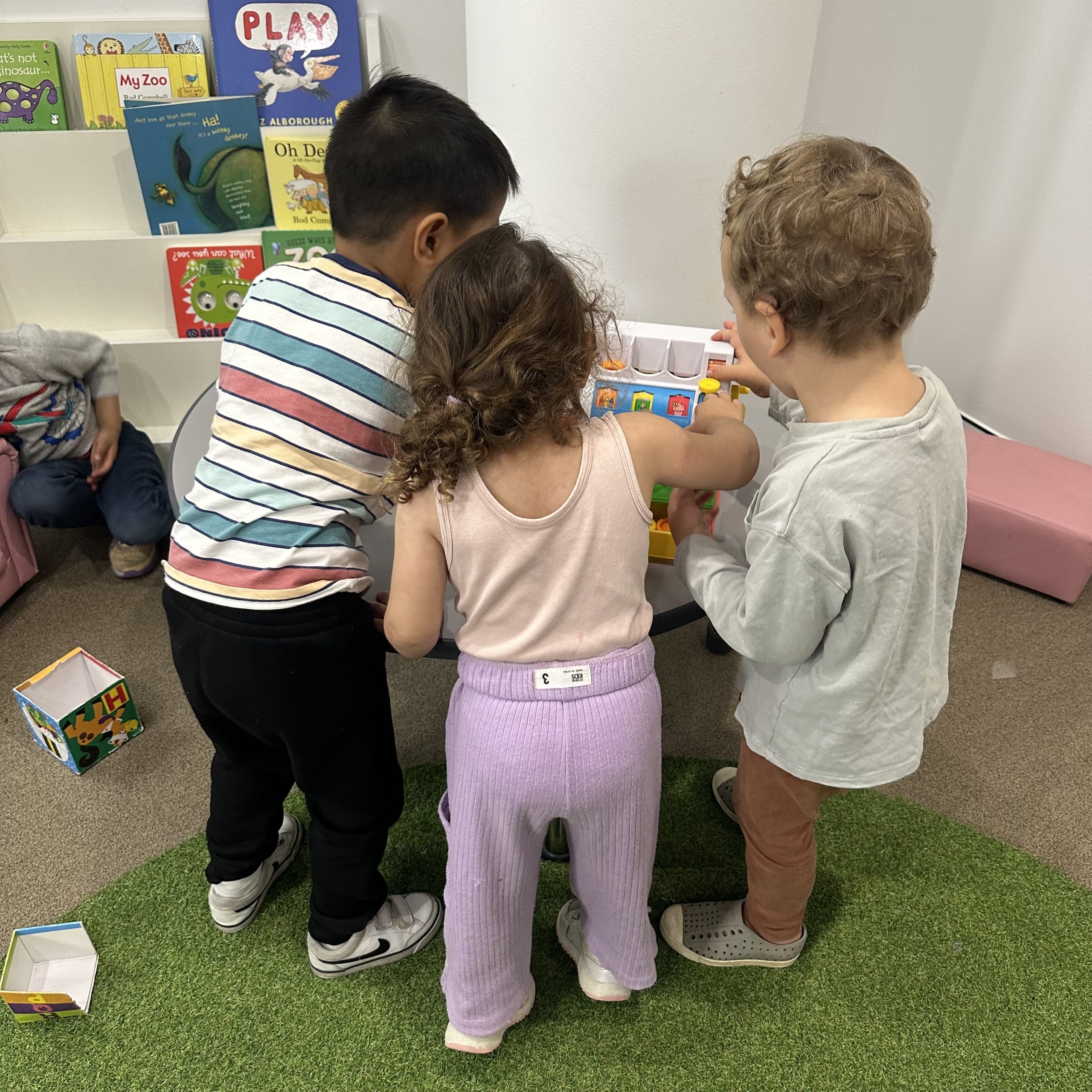
Learning to take turns is an essential skill for children. It helps them interact positively with others and is a fundamental part of social development. Taking turns involves waiting patiently and understanding that everyone gets a chance to participate. Taking turns is challenging for many children with social communication issues. Here are some key points about why taking turns is important and how to help children learn this skill.
Why Taking Turns is Important
Social Skills: Taking turns is a basic social skill that helps children interact with others. It teaches them to be considerate and respectful. When children take turns, they learn to share, listen, and cooperate, which are all important for making friends and working in groups.
Patience: Waiting for their turn teaches children patience. They learn that they cannot always have what they want right away and that waiting is sometimes necessary. This skill is useful in many situations throughout life.
Fairness: Taking turns helps children understand the concept of fairness. They learn that everyone has an equal right to participate and that no one should dominate all the time. This understanding helps them build better relationships with others.
Communication: Turn-taking promotes better communication. When children take turns speaking and listening, they learn to express themselves clearly and to understand others. This improves their language skills and their ability to have meaningful conversations.
Problem-Solving: When children learn to take turns, they also develop problem-solving skills. They figure out how to negotiate, compromise, and find solutions that work for everyone. This is important for resolving conflicts and working together as a team.
How to Teach Children to Take Turns
Model the Behaviour: Children learn a lot by watching adults. Show them how to take turns by doing it yourself. For example, during a conversation, take turns speaking and listening. When playing a game, follow the rules and take turns with your child.
Use Simple Games: Play games that involve turn-taking. If your child is young, use simple activities like rolling a ball back and forth or taking turns building a tower with blocks. AWhen they develop the ability to play, use taking turns as they play with cars and dolls. If your child is older then use activities such as board games, card games. These games provide a fun and natural way to practice taking turns.
Explain and Reinforce: Explain to your child why taking turns is important. Use simple language like, “It’s your turn now, and then it will be my turn.” Praise them when they wait patiently and take turns properly. Positive reinforcement helps them understand and remember the behaviour.
Create Opportunities: Give your child plenty of opportunities to practice taking turns. This could be during playdates, at the park, or during family activities. The more they practice, the better they will become at it.
Use Visual Cues: For younger children, visual cues can be helpful. Use a timer to show when it’s time to switch turns. You can also use objects like a “talking stick” where only the person holding the stick gets to talk.
Encourage Sharing: Encourage children to share their toys and take turns using them. This not only helps with turn-taking but also teaches them to be generous and considerate of others.
Dealing with Challenges
Be Patient: Learning to take turns can be challenging for children, especially when they are very young. Be patient and give them time to develop this skill.
Stay Calm: If a child is having trouble waiting for their turn, stay calm and gently remind them of the rules. Use a soothing tone to help them manage their frustration.
Set Clear Expectations: Make sure children understand the rules about taking turns. Be consistent in enforcing these rules so they know what to expect.
Conclusion
Learning to take turns is a crucial part of a child’s development. It helps them build social skills, patience, fairness, communication, and problem-solving abilities. By modelling the behaviour, using simple games, explaining the importance, and creating opportunities for practice, parents and caregivers can help children master this important skill. With time and encouragement, children can learn to take turns, leading to better interactions and relationships with others.
What should you do if you child still has trouble learning to take turns
Children with developmental delays, autism and other social communication delays often have trouble taking turns. At OneOnOne Children’s Therapy, we tackle this in a number of ways. For children with autism, we teach taking turns in our ESDM sessions. In particular, this is a common goals for all children in our group ESDM sessions. Our Speech Pathologists and Occupational Therapists teach it in individual sessions and in our social skills groups. With the right intervention approach, children do learn to take turns.
If you are concerned about your child’s ability, please call us on (02) 80657837 or email. You can book a free 30 minute phone call with us. Our clinics are in Bondi Junction and Mascot – in Sydney’s Eastern suburbs.We can understand your concerns and explain how we can help your child. We can’t wait to see your child reach their highest potential.
